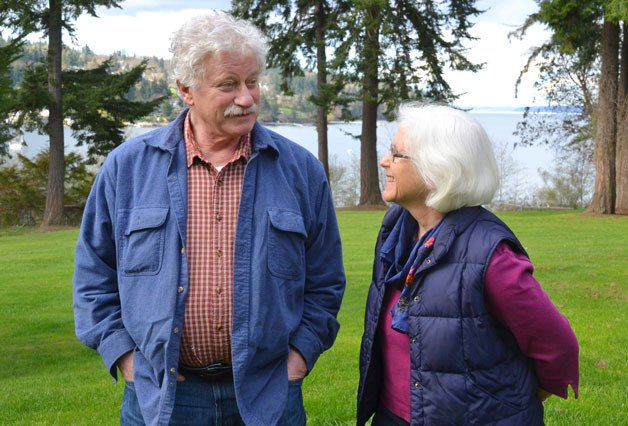Two Clinton documentary filmmakers are taking their message to the American living room.
Mark Dworkin and Melissa Young’s film “SHIFT CHANGE” will premiere at 5 p.m. Sunday, April 6 on KCTS 9. The documentary explores employee-owned businesses succeeding in today’s economy.
Dworkin and Young filmed six worker cooperatives in the U.S. and in the Basque Country of Spain. The pair has filmed documentaries for 25 years, including “Argentina – Hope in Hard Times” in 2005 and “Good Food” in 2008. Film festivals, theaters and universities screened “SHIFT CHANGE” film in 2012, but this is the first time it will be available on PBS.
The two filmmakers were inspired by the successful venture in Spain called Mondragon Cooperatives. They wanted to make a film looking at a different type of business for people during the current hard economic times.
“People are so concerned about jobs — decent paying jobs — and about the growing economic inequalities in the country,” Young said. “Really I think people are looking for some creative new solutions that will work, and businesses that will stay put in a community and not move away.”
Dworkin and Young gained rare access to the Mondragon Cooperatives, which is the world’s oldest and largest cooperative network.
While filming, Dworkin said it was exciting to see people with a sense of community who worked together and were supportive of each other. In the Basque Country, 60 percent of residents are employee-owners. The area also has half the unemployment rate as the rest of Spain.
“I was amazed,” he said. “The people are prosperous and have a good way of life that these kind of businesses can provide.”
Dworkin and Young explore the success of employee-owned businesses and the benefits of its principles. In most cooperatives, the prevailing mission is aimed toward the common good, the well-being of employees and making money, which is purposely not the top priority. Dworkin said this is a key difference between a cooperative and businesses such as a publicly-traded company.
Because employees have a stake in the business in a cooperative, they have a deep understanding of what they are doing, Dworkin said. The cooperative is a privately-owned business and success is important, but the community and employee-owners are paramount.
“Folks are well-informed,” he added.
Dworkin hopes the film inspires creative solutions to the growing economic disparities. This model of an employee-owned business is a practical answer to create good-paying jobs that stay in communities, he said.
Young said she enjoys working on films about contemporary issues, but instead of reliving the issues, she wants to offer a solution.
“These films are looking toward what is already happening that we can build on. Rather than confining ourselves to critique significant problems, we look for possibilities,” she said.
Worker cooperatives are just one part of building a more sustainable economy, she said.
“It’s a piece that we don’t have to wait for federal policy in order to create it,” she said. “I like being able to show those types of examples. Especially at this point in time, I think people are looking for some changes.”



